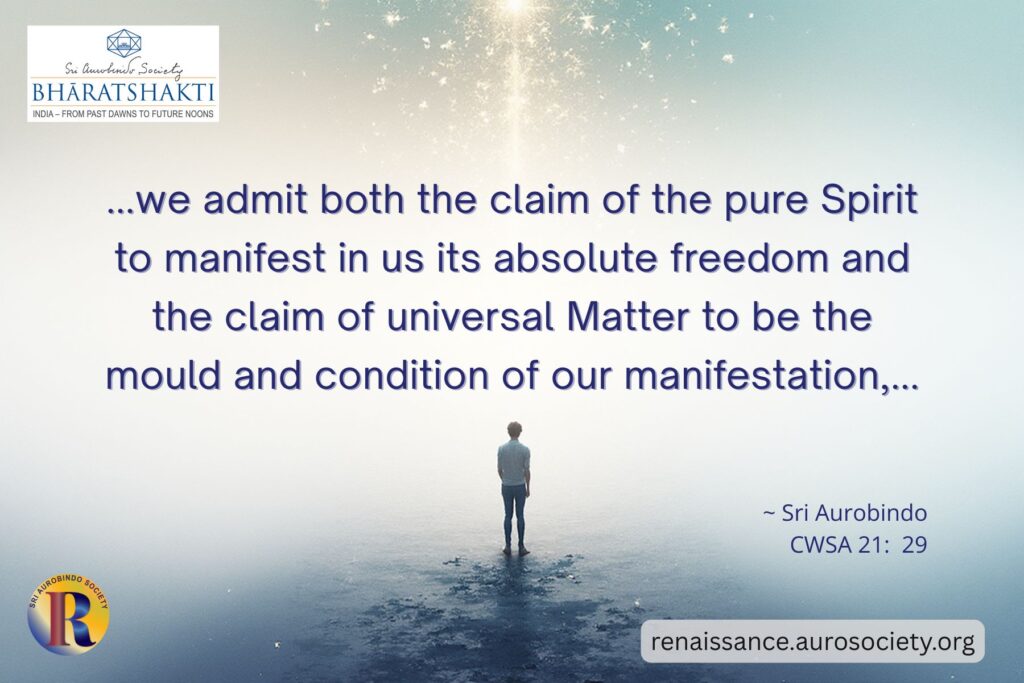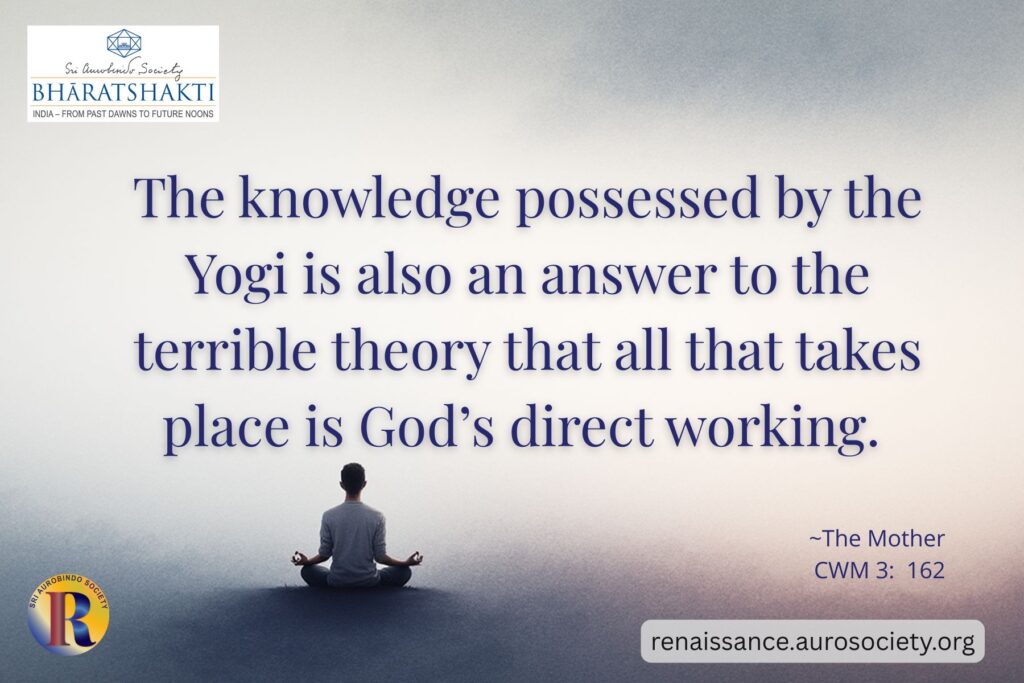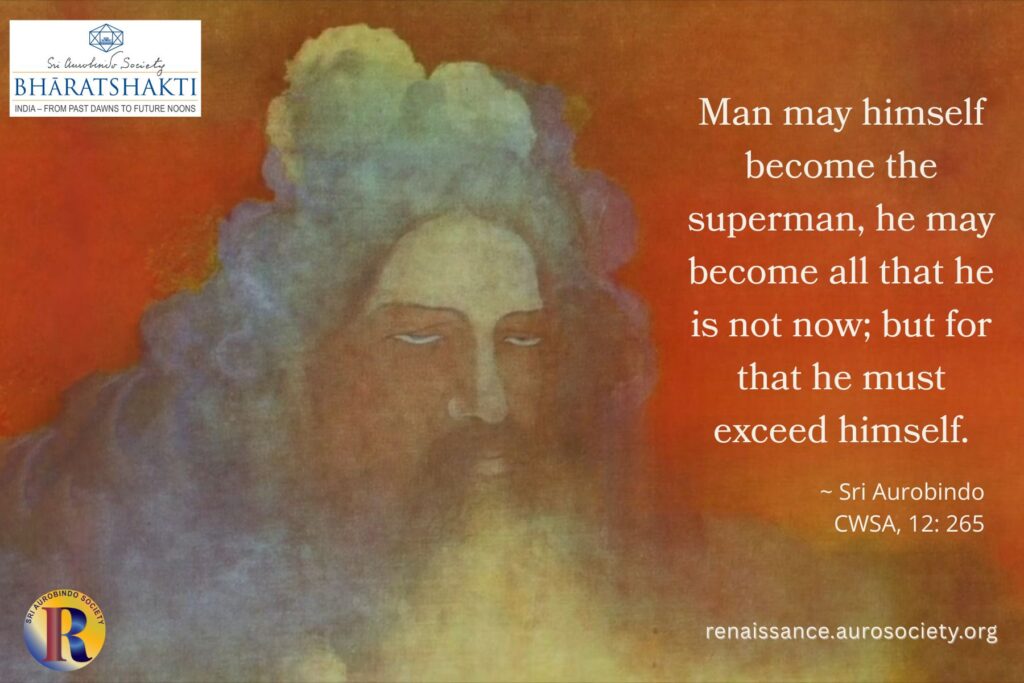Vol. III, Issue 6
Author: Sri Aurobindo
Continued from Part 2
Equality of the Dynamic Being
The same equality must be brought into the rest of our being. Our whole dynamic being is acting under the influence of unequal impulses, the manifestations of the lower ignorant nature.
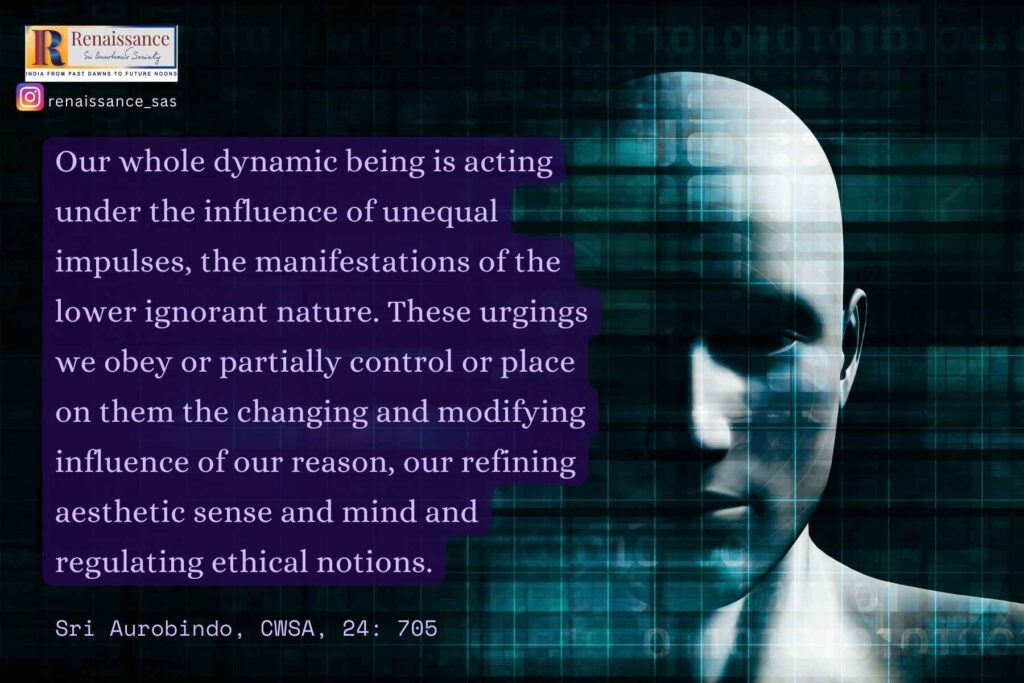
These urgings we obey or partially control or place on them the changing and modifying influence of our reason, our refining aesthetic sense and mind and regulating ethical notions. A tangled strain of right and wrong, of useful and harmful, harmonious or disordered activity is the mixed result of our endeavour, a shifting standard of human reason and unreason, virtue and vice, honour and dishonour, the noble and the ignoble, things approved and things disapproved of men, much trouble of self-approbation and disapprobation or of self-righteousness and disgust, remorse, shame and moral depression. These things are no doubt very necessary at present for our spiritual evolution.
But the seeker of a greater perfection will draw back from all these dualities, regard them with an equal eye and arrive through equality at an impartial and universal action of the dynamic Tapas, spiritual force, in which his own force and will are turned into pure and just instruments of a greater calm secret of divine working.
Equality of the Will
The ordinary mental standards will be exceeded on the basis of this dynamic equality. The eye of his will must look beyond to a purity of divine being, a motive of divine will-power guided by divine knowledge of which his perfected nature will be the engine, yantra. That must remain impossible in entirety as long as the dynamic ego with its subservience to the emotional and vital impulses and the preferences of the personal judgment interferes in his action.
A perfect equality of the will is the power which dissolves these knots of the lower impulsion to works. This equality will not respond to the lower impulses, but watch for a greater seeing impulsion from the Light above the mind, and will not judge and govern with the intellectual judgment, but wait for enlightenment and direction from a superior plane of vision.
As it mounts upward to the supramental being and widens inward to the spiritual largeness, the dynamic nature will be transformed, spiritualised like the emotional and pranic, and grow into a power of the divine nature.
There will be plenty of stumblings and errors and imperfections of adjustment of the instruments to their new working, but the increasingly equal soul will not be troubled overmuch or grieve at these things, since, delivered to the guidance of the Light and Power within self and above mind, it will proceed on its way with a firm assurance and await with growing calm the vicissitudes and completion of the process of transformation.
The promise of the Divine Being in the Gita will be the anchor of its resolution, “Abandon all dharmas and take refuge in Me alone; I will deliver thee from all sin and evil; do not grieve.”
Equality of the Thinking Mind
The equality of the thinking mind will be a part and a very important part of the perfection of the instruments in the nature.
Our present attractive self-justifying attachment to our intellectual preferences, our judgments, opinions, imaginations, limiting associations of the memory which makes the basis of our mentality, to the current repetitions of our habitual mind, to the insistences of our pragmatic mind, to the limitations even of our intellectual truth-mind, must go the way of other attachments and yield to the impartiality of an equal vision.
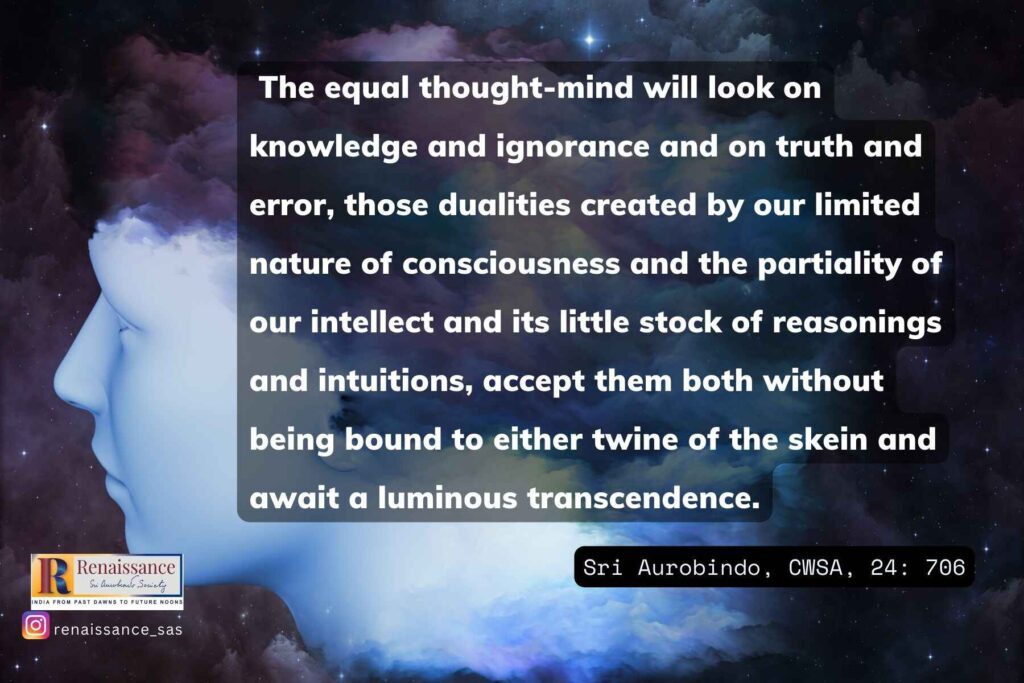
The equal thought-mind will look on knowledge and ignorance and on truth and error, those dualities created by our limited nature of consciousness and the partiality of our intellect and its little stock of reasonings and intuitions, accept them both without being bound to either twine of the skein and await a luminous transcendence.
In ignorance it will see a knowledge which is imprisoned and seeks or waits for delivery, in error a truth at work which has lost itself or got thrown by the groping mind into misleading forms.
On the other side it will not hold itself bound and limited by its knowledge or forbidden by it to proceed to fresh illumination, nor lay too fierce a grasp on truth, even when using it to the full, or tyrannously chain it to its present formulations. This perfect equality of the thinking mind is indispensable because the objective of this progress is the greater light which belongs to a higher plane of spiritual cognizance.
This equality is the most delicate and difficult of all, the least practised by the human mind; its perfection is impossible so long as the supramental light does not fall fully on the upward looking mentality. But an increasing will to equality in the intelligence is needed, before that light can work freely upon the mental substance.
This too is not an abnegation of the seekings and cosmic purposes of the intelligence, not an indifference or impartial scepticism, nor yet a stilling of all thought in the silence of the Ineffable. A stilling of the mental thought may be part of the discipline, when the object is to free the mind from its own partial workings, in order that it may become an equal channel of a higher light and knowledge; but there must also be a transformation of the mental substance; otherwise the higher light cannot assume full possession and a compelling shape for the ordered works of the divine consciousness in the human being.
The silence of the Ineffable is a truth of divine being, but the Word which proceeds from that silence is also a truth, and it is this Word which has to be given a body in the conscious form of the nature.
But, finally, all this equalisation of the nature is a preparation for the highest spiritual equality to take possession of the whole being and make a pervading atmosphere in which the light, power and joy of the Divine can manifest itself in man amid an increasing fullness. That equality is the eternal equality of Sachchidananda.
It is an equality of the infinite being which is self-existent, an equality of the eternal spirit, but it will mould into its own mould the mind, heart, will, life, physical being. It is an equality of the infinite spiritual consciousness which will contain and base the blissful flowing and satisfied waves of a divine knowledge. It is an equality of the divine Tapas which will initiate a luminous action of the divine will in all the nature. It is an equality of the divine Ananda which will found the play of a divine universal delight, universal love and an illimitable aesthesis of universal beauty.
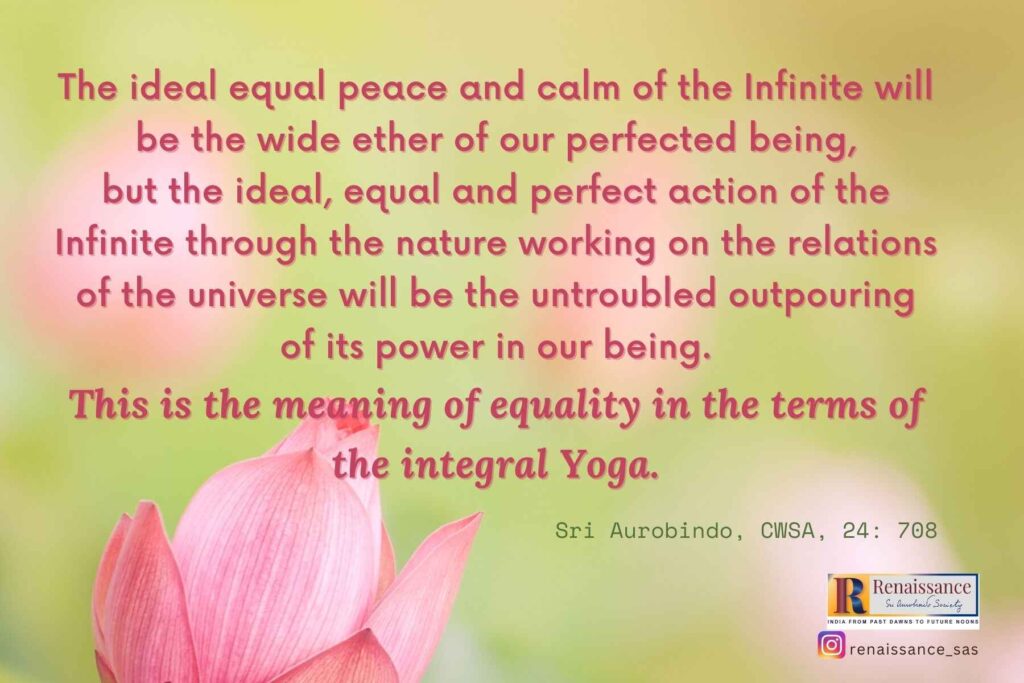
The ideal equal peace and calm of the Infinite will be the wide ether of our perfected being, but the ideal, equal and perfect action of the Infinite through the nature working on the relations of the universe will be the untroubled outpouring of its power in our being. This is the meaning of equality in the terms of the integral Yoga.
~ Sri Aurobindo, CWSA, Vol. 24, pp. 705-708

